South Asian Countries have experienced much struggle and widespread political changes sivce 2008. While Bhutan made the transition from monarchy to constitutional democracy this collection of essays takes an in-depth and analytical look at India and its neighbourhood against a brief historical backdrop of each country and addresses the vital question of whether these political developments served as markers of substantial political change regarding constitutionalism, democracy, secularism, human rights, and human development in Afghanistan, Bangladesh, Bhutan, India, Maldives, Myanmar, Nepal, Pakistan, and Sri Lanka.
It explores whether such political events of great magnitude had changed only political dispensations in these countries or have they actually inspired new political discourse and created a new vision among the political class. How had the people responded to these changes and the new situations triggered by them?
Did such political events of great magnitude change only political dispensations in these countries? Or did they actually inspire new political discourse and create a new vision among the political class?
This volume posits the vital question on constiutionalism and democratic development against a brief historical backdrop of each country in the region. Timely, authoritative, and analytical, it is a major scholarly addition on the polity of South Asia.

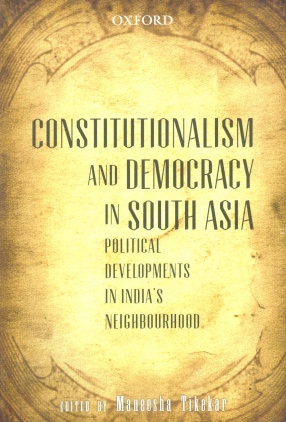
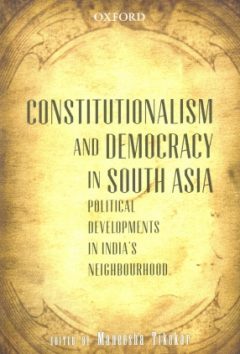
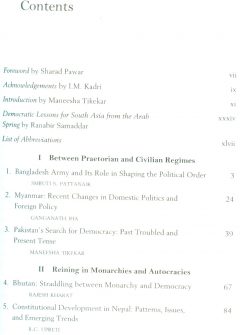
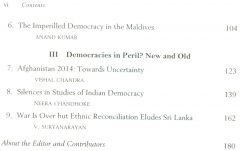


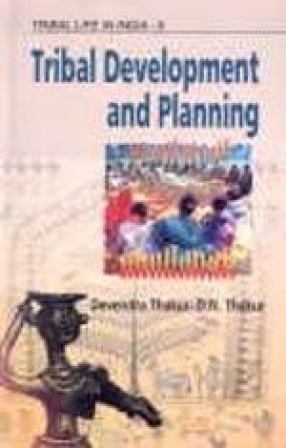
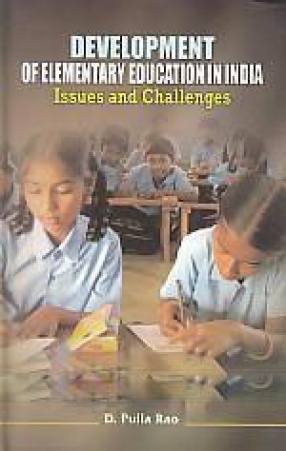
There are no reviews yet.